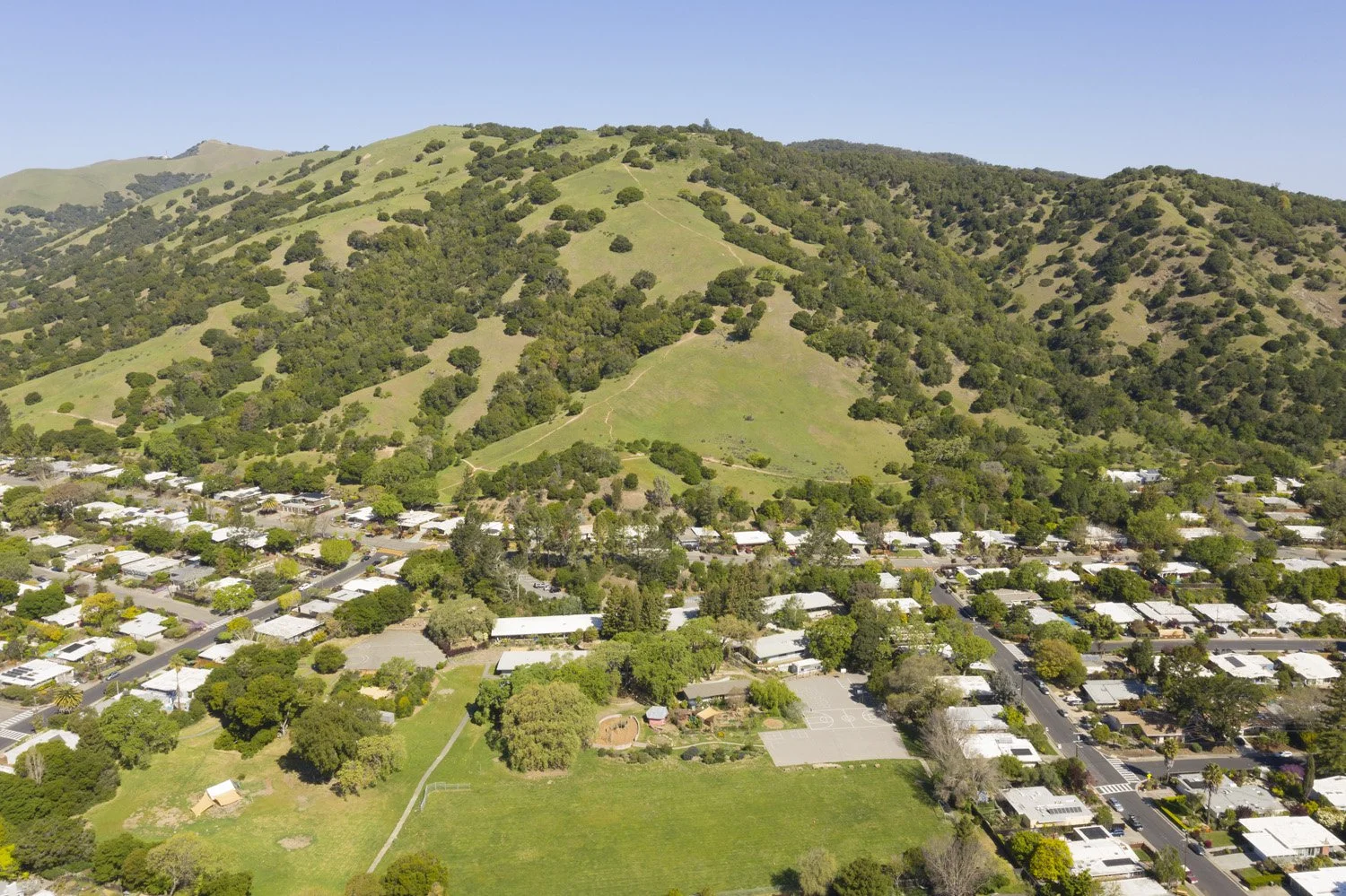An Evolving Land Acknowledgment
Current draft written by the Class of 2023
This school resides on the unceded ancestral land of the Coast Miwok, Yokuts, Patwin, Ohlone and other Indigenous peoples. They still live here, thrive here, and care for this land.
We want to learn histories from multiple perspectives so we can better understand the places we call home. We want to grow in a community that cultivates an expansive mindset with diverse ideas, people, and practices.
We believe it is our responsibility to help restore the people and places that have been damaged, and to do our part to ensure a regenerative future.
One year ago, the Class of 2023 presented the school with a beautifully written land acknowledgement (above) to replace the one our school had previously adopted. It carried a heartfelt quality infused with values we hold dear here at Marin Waldorf School. Additionally, the class tasked future 8th grade classes to reconsider the words each year, and to offer any updated ideas or language the statement may need. How wise!
The class of 2024 followed their suggestion and set themselves to the task. We looked over the version created by the class of 2023 and found it so insightful that the wording did not need to be changed. We did, however, learn that many indigenous groups and leaders feel that a land acknowledgement without a form of action behind it falls short of its intention. For example, our own land acknowledgement says that “we believe it is our responsibility to help restore the people and places that have been damaged,” but we felt conflicted knowing that our words alone cannot do that. We pondered how our land acknowledgement could offer some type of action embedded within it.
We then discovered that many people are beginning to take action in what is being referred to as a nationwide land-back movement. In Berkeley, an Ohlone Cultural Center will be built this summer using funds received in part through the Shuumi land tax and Sogorea Te Land Trust. Many people are beginning to couple information about these land taxes with land acknowledgements in their homes and businesses. We liked this model a lot.
Additionally, in 2001, the Lakota Waldorf School in South Dakota put out a call to action to all Waldorf schools of North America, urging offer full tuition assistance to native applicants; Marin Waldorf School is just one of three schools to heed this call, launching the MWS Native Reconciliation Tuition Program in the spring of 2023. After learning more about this program, we felt this was the best way for our community to “take action” here on campus. Moreover, Native students are applying, and this has us excited that our school can be an example to others. It seemed clear to us that placing a QR code alongside our current land acknowledgement (see below) was exactly the update that it needed. Aligning with our school’s values and desire to take reparations seriously, our class has made a $500 contribution to the program, hoping others will be inspired to do the same.
We are grateful for the invitation from the class of 2023 to add to the legacy they began, helping to bring greater awareness to native reparations. Through our school’s land acknowledgment, we learned that we can be part of the necessary change “to ensure a regenerative future.”
—Rising Percey, Teacher, Class of 2024

